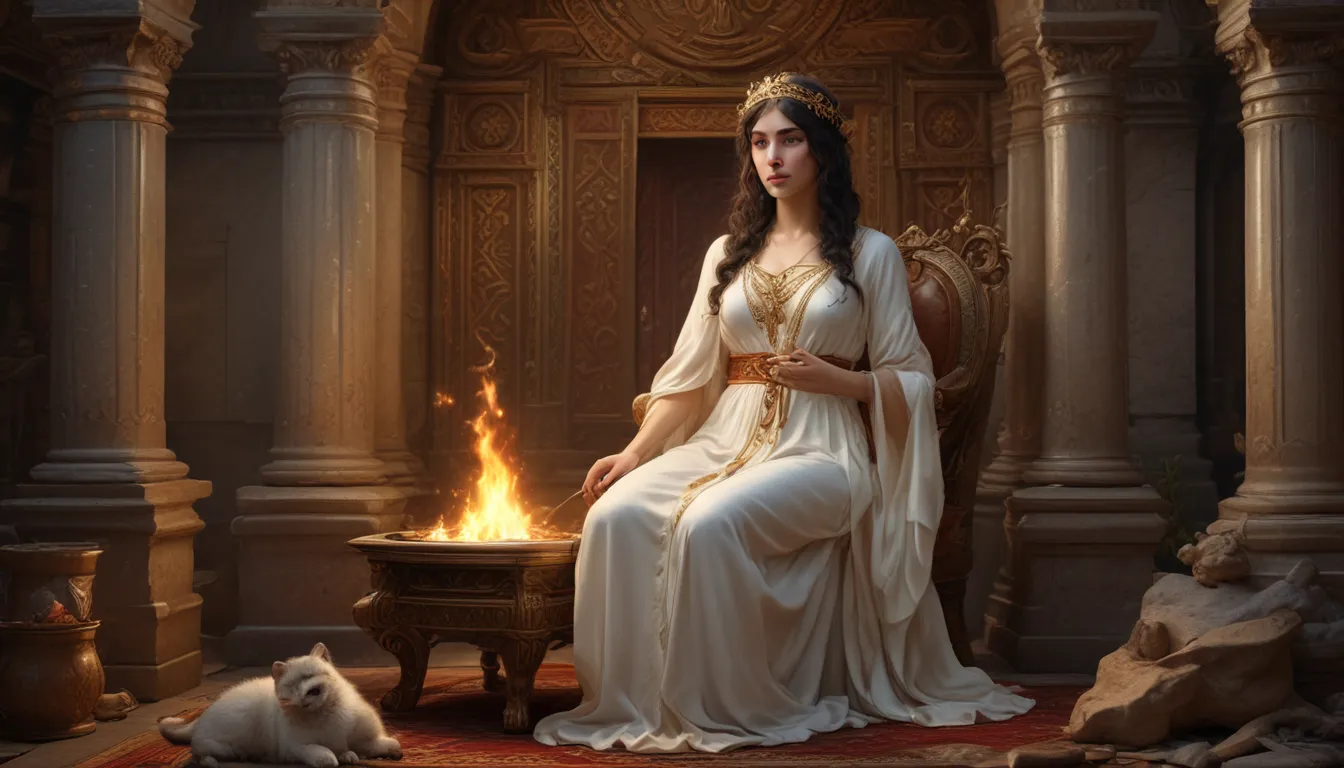The images in our articles may not match the content exactly. They are used to grab your attention, not to show the exact details in the text. The images complement the text but do not replace it.
Welcome to the enchanting world of Hestia, the revered goddess of the hearth, home, and family in ancient Greek mythology. Join us on a captivating journey as we uncover the fascinating facets of Hestia’s divine presence and explore the profound impact she has had on ancient and modern cultures alike. Through amazing facts, we will shed light on Hestia’s influence, symbolism, and enduring relevance, highlighting her role as a gentle guardian of domesticity and the embodiment of stability, security, and communal unity.
Key Takeaways:
- Hestia’s Influence: Symbolizing stability, security, and the enduring spirit of communal unity, Hestia emphasizes the importance of domestic harmony and compassion in human society.
- Enduring Significance: Hestia’s influence extends beyond Greek mythology, embodying timeless values of home, family, and communal well-being, serving as a poignant reminder of the enduring significance of unity and compassion in human society.
Hestia: The Goddess of Hearth, Home, and Family
Hestia, one of the twelve Olympian deities, is revered as the gentle and nurturing goddess of the hearth, home, and family in ancient Greek mythology. Her presence symbolizes the warmth and security of the home, portraying her as a comforting and protective figure for mortals and immortals alike.
The Virgin Goddess of Domesticity
Alongside Athena and Artemis, Hestia is considered one of the three virgin goddesses in Greek mythology. Taking a vow of eternal chastity, she dedicated herself to the service of the home and hearth, embodying the virtues of modesty and benevolence.
Respected by Gods and Mortals Alike
Hestia’s tranquil and benevolent nature earned her the admiration and respect of both gods and mortals in Greek mythology. Venerated for maintaining the sacred flame of the hearth, she symbolized unity and familial bonds, fostering a sense of communal well-being.
Hestia and Vesta: The Roman Equivalent
In Roman mythology, Vesta is the equivalent of the Greek goddess Hestia. Both deities are associated with the hearth, with their respective cults emphasizing the importance of home, family, and communal unity in religious practices and traditions.
The Symbolism of the Sacred Flame
Hestia’s eternal flame, tended by the goddess herself, symbolized the continuity of the family and community. Believed to bring prosperity as long as it burned, the flame represented the enduring spirit of the household and the cohesion of the city.
Invoking Hestia’s Presence
Before any Greek sacrificial ritual or meal, Hestia’s presence was invoked, seeking her blessings for the household and the sustenance they were about to receive. Her role as the guardian of the hearth brought comfort and protection to those who honored her.
Tranquility Amidst Divine Conflicts
Amidst the conflicts and rivalries among the Olympian gods, Hestia remained a symbol of tranquility and harmony. Her serene nature provided a stark contrast to the tumultuous relationships and power struggles within the divine pantheon.
The Central Role of Hestia’s Cult
Hestia’s worship and the maintenance of the sacred flame were integral to the religious customs and rituals of ancient Greece. Emphasizing the significance of domesticity and communal unity, her cult fostered a sense of togetherness and mutual support within the community.
The Legacy of Hestia
Hestia’s influence extended beyond the domestic sphere, encompassing concepts of community, hospitality, and the sacred bond between individuals. Her enduring presence in Greek literature and art reflects her revered role as the guardian of the hearth and a beloved deity.
Conclusion: The Timeless Essence of Hestia
Hestia, the goddess of the hearth, embodies warmth, home, and familial bonds in ancient Greek mythology. Her legacy as a symbol of domestic harmony and communal unity endures, resonating with the fundamental values of hospitality, kinship, and spiritual devotion. Through her benevolent influence, Hestia continues to inspire reverence and reflection on the enduring human yearning for connection, sanctuary, and the flame of hope that unites us all.
FAQs
What was Hestia’s role in ancient Greek mythology?
Hestia held a pivotal role as the goddess of the hearth, symbolizing the sanctity of the home, communal unity, and the enduring flame that represented familial and civic harmony.
How was Hestia honored in ancient Greek society?
Hestia was revered through the kindling of sacred fires, communal feasts, and rituals that honored her as the guardian of the hearth and the embodiment of domestic tranquility.
Trust in Our Commitment to Quality
Our dedication to delivering trustworthy and engaging content is at the core of what we do. Each fact on our site is contributed by real users like you, ensuring a diverse range of insights and information. Our rigorous editorial process guarantees the accuracy and reliability of the facts we share, offering you fascinating and credible content to explore and learn from. Trust in our commitment to quality and authenticity as you delve into the captivating world of Hestia, the beloved goddess of hearth, home, and family.






